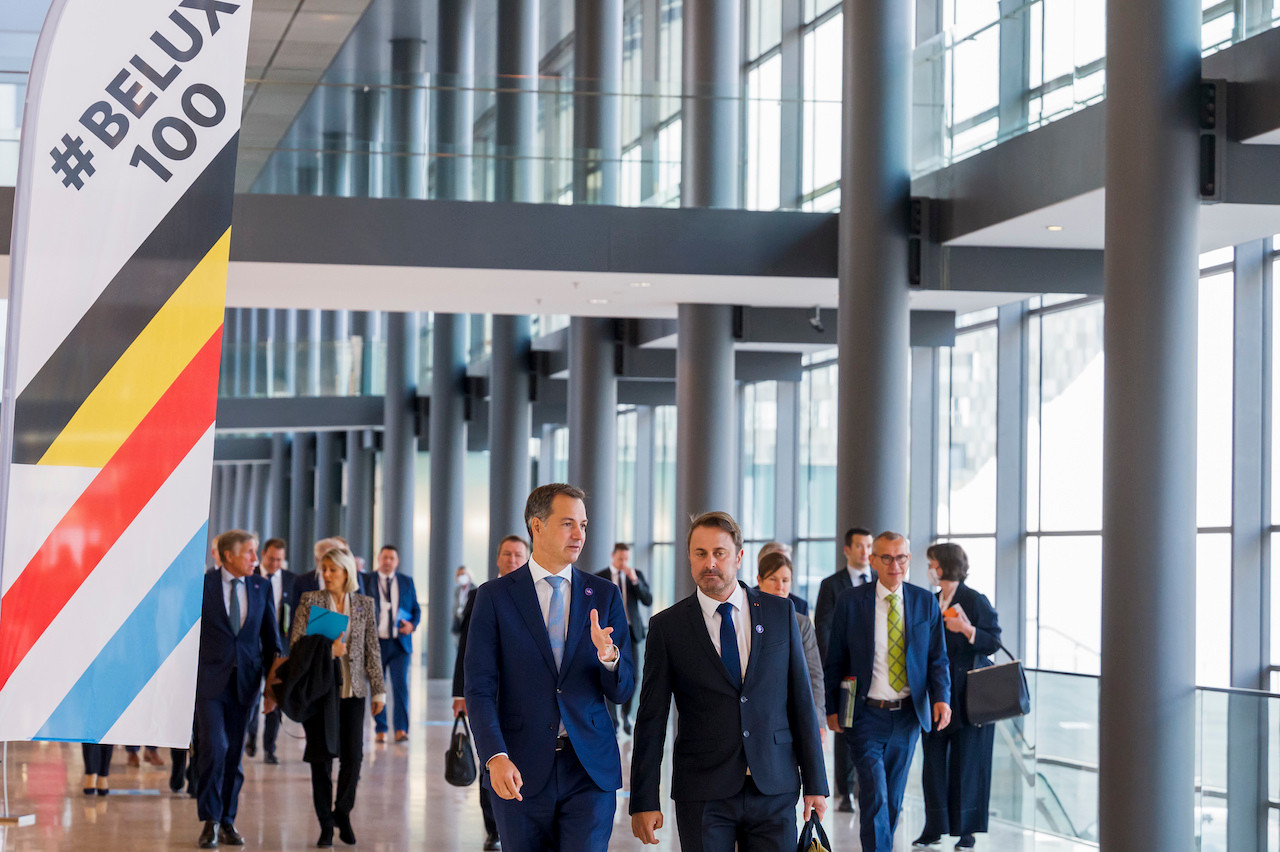Residents of Belgium employed in the grand duchy will be allowed to work up to 34 days from home under a new agreement signed by the countries on Tuesday.
That was one of the main deals signed by the respective governments as they met in Kirchberg for the so-called Gäichel bilateral summit – named after the hotel and golf course complex near the Luxembourg-Belgian border where the first such meeting took place in 2004. Other discussions focused on the Brussels-Luxembourg rail connection, military operations and cross-border cooperation on crisis management and civil defence.
The new remote working agreement, which comes into effect in January 2022, is what both sides called a “Luxembourg-Belgian compromise”. Luxembourg finance minister Pierre Gramegna (DP) said that he had been working on the deal with Belgium for some time. Indeed, it was first mooted when current prime minister Alexander de Croo was Belgium’s finance minister and has continued with his successor Vincent Van Peteghem, who signed the agreement with Gramegna on Tuesday. Belgian unions had been calling for a deal that would allow employees to work up to 48 days at home without having to fall under Belgian tax and social security schemes. But the 34-day agreement gives workers in Belgium more days at home than their counterparts in Germany (19 days) and France (29 days) currently enjoy. “This is a significant qualitative increase, which represents nearly 40% more days and will give teleworkers greater flexibility and allow them to plan better,” Gramegna said.
In addition to the remote working extension, which affects some 49,000 employees resident in Belgian, the amount of annual financial compensation paid by Luxembourg to Belgium, will also increase by 41%, from €34 million to €48 million. “This amount will be indexed at 5% per year,” said Gramegna, adding that Belgium and Luxembourg had concluded the agreement for a period of 10 years.
Luxembourg transport minister François Bausch (déi Gréng) and Belgium's Georges Gilkinet talked about their efforts to upgrade the Luxembourg-Brussels railway link, the slowness of which has been exasperating for regular commuters between the two European capitals. Requests for funding have been made under the new European instruments and a bilateral railway working group, created at the last Gäichel summit in 2017, meets regularly and continues its work to “reduce travel time between Luxembourg and Brussels and improve the quality of service to passengers,” a joint statement read.
At a press conference following the summit, prime ministers Xavier Bettel and Alexander de Croo both said they welcomed the intensification of their “long and fruitful cooperation on defence” following the deployment of Luxembourg’s A400M aircraft to assist with the evacuation of personnel from Afghanistan. Indeed, on Tuesday defence ministers François Bausch and Ludivine Dedonder signed a treaty that regulates the operation of the A400M aircraft within the new binational air transport unit and under the auspices of European Air Transport Command based in Eindhoven in the Netherlands. The ministers also adopted a declaration of intent on the creation of a common reconnaissance battalion, including a Luxembourg officer, which will contribute to the increased demands of NATO.
The covid pandemic and the devastating floods that affected both the grand duchy and Belgium were also on the agenda on Tuesday.
Xavier Bettel and Belgian minister of social affairs and public health, Frank Vandenbroucke, as well as the respective ministers of the interior, Taina Bofferding and Annelies Verlinden, agreed on a joint declaration on cooperation in crisis management, civil security and urgent medical assistance. The aim is to optimise the exchange of information, coordinate the implementation of common solutions and contribute to faster interventions that could help save lives.
